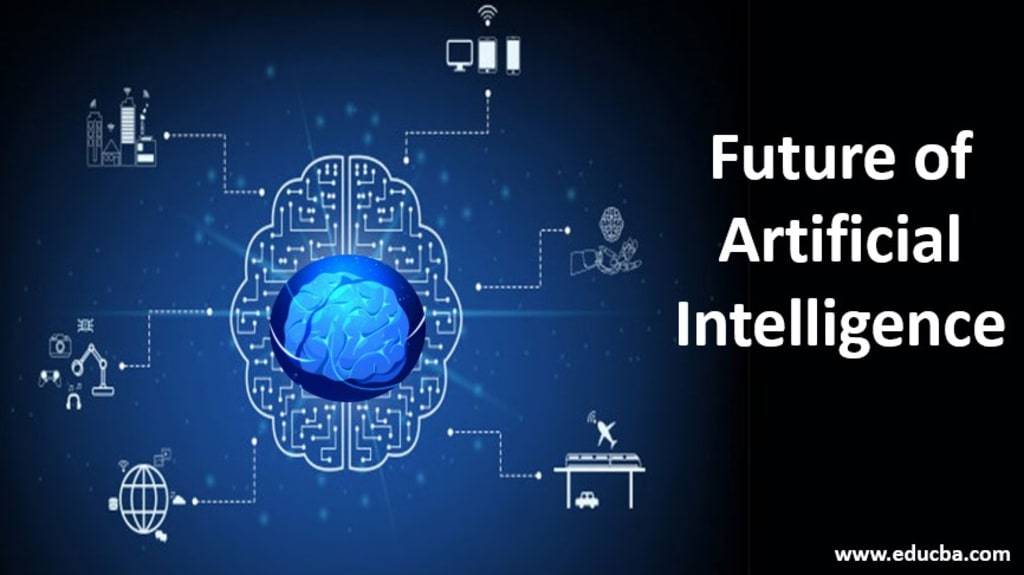Artificial Intelligence (AI) has become a central part of modern society, influencing everything from healthcare to education, business, and entertainment. As AI technology advances rapidly, its potential to reshape our future is vast, but it also raises questions and challenges. This article delves into the opportunities AI offers, the challenges it presents, and the future we may see as AI continues to evolve.
Introduction to Artificial Intelligence
Artificial Intelligence is the ability of machines, especially computer systems, to mimic human intelligence. Through algorithms, AI can perform tasks such as visual perception, speech recognition, decision-making, and language translation, which traditionally required human intelligence. The field encompasses various technologies like machine learning, deep learning, and natural language processing, each contributing to creating more “intelligent†systems. While AI has been in development for decades, recent advancements in computing power and data availability have accelerated its growth, making it one of the most significant technological transformations of the 21st century.
Current Applications in Everyday Life
AI is no longer a distant concept; it’s part of our daily lives in ways we may not even realize. Smartphones use AI-powered voice assistants, like Siri and Google Assistant, to interpret and respond to user queries. Social media platforms employ AI algorithms to personalize content, showing us ads and posts that align with our interests. In healthcare, AI helps analyze medical images, enabling faster and more accurate diagnoses. Autonomous vehicles, although still developing, rely on AI for navigation and safety. The reach of AI is expanding, with new applications emerging regularly, improving efficiency and enhancing user experience across industries.
Opportunities AI Presents
AI brings numerous opportunities that could redefine industries and improve quality of life. Here are a few key opportunities:
Enhanced Efficiency and Productivity: AI systems can process massive amounts of data quickly and accurately, making them invaluable for tasks requiring precision. For example, businesses use AI to automate repetitive processes, reducing human error and freeing employees to focus on strategic activities.
Healthcare Innovations: AI-driven tools are reshaping healthcare by helping professionals diagnose diseases, analyze medical data, and even predict outbreaks. Machine learning models can scan medical records to identify patterns, which can then be used to recommend personalized treatment plans for patients.
Advanced Learning and Education: AI-powered educational platforms adapt to students’ needs, providing personalized resources and feedback. Virtual tutoring systems allow students to learn at their own pace, increasing accessibility and understanding.
Climate and Environmental Solutions: AI also plays a role in tackling environmental issues. For instance, AI-powered systems analyze climate data to predict weather patterns, helping communities prepare for natural disasters. AI is also used in sustainable energy management, assisting companies in reducing waste and optimizing resources.
Ethical and Societal Challenges
Despite its benefits, AI presents significant ethical and societal challenges that need careful consideration:
Privacy Concerns: AI systems collect vast amounts of personal data, from our online habits to our health records. This data is used to make predictions and decisions, raising concerns about how secure and private this information remains. In an era where data breaches are common, AI’s reliance on data intensifies these concerns.
Bias and Fairness: AI algorithms are trained on data, and if this data contains biases, AI can replicate or even amplify these biases. For instance, biased data can affect decisions related to hiring, lending, and law enforcement, leading to unfair treatment. Ensuring that AI systems are fair and unbiased is an ongoing challenge for developers.
Job Displacement: As AI automates more tasks, there are concerns about job losses in industries like manufacturing, retail, and customer service. While AI may create new job opportunities, there is also a risk that low-skilled workers could be disproportionately affected. Preparing the workforce for an AI-driven economy is essential to mitigate this issue.
Control and Accountability: AI systems can make autonomous decisions, sometimes with little human intervention. This autonomy raises questions about who is responsible when an AI system makes a mistake or causes harm. For example, in the case of autonomous vehicles, establishing accountability for accidents or malfunctions can be complex.
Future Prospects
The future of AI holds exciting possibilities. Here are some areas where we may see significant advancements:
AI in Healthcare: We may soon see AI systems that can perform complex surgeries with high precision, assist in drug discovery, and even develop personalized medicine based on a person’s genetic makeup. These advancements could revolutionize healthcare, leading to better outcomes and increased accessibility.
AI and Climate Change: AI’s role in environmental sustainability is expected to grow. By optimizing energy use, managing natural resources, and analyzing environmental data, AI can help combat climate change more effectively. Predictive models powered by AI could enable communities to anticipate natural disasters and respond proactively.
Human-Machine Collaboration: Rather than replacing human workers, future AI systems may work alongside them. This collaboration could enhance creativity and problem-solving, allowing humans and machines to complement each other’s strengths. From creative industries to scientific research, AI-human collaboration could unlock new forms of innovation.
Ethical AI and Regulation: As AI becomes more integrated into society, ethical guidelines and regulations will be crucial. Governments, tech companies, and researchers are increasingly focused on establishing rules to ensure AI is used responsibly. Transparency, accountability, and data protection will likely be the focus of future AI legislation.
Conclusion
Artificial Intelligence holds incredible potential to reshape our future, presenting opportunities for innovation, efficiency, and improved quality of life. However, it also brings ethical, societal, and economic challenges that must be addressed thoughtfully. As we move forward, a balanced approach that maximizes AI’s benefits while minimizing its risks will be essential. With responsible development and regulations in place, AI has the potential to positively transform our world in ways we are only beginning to imagine.


